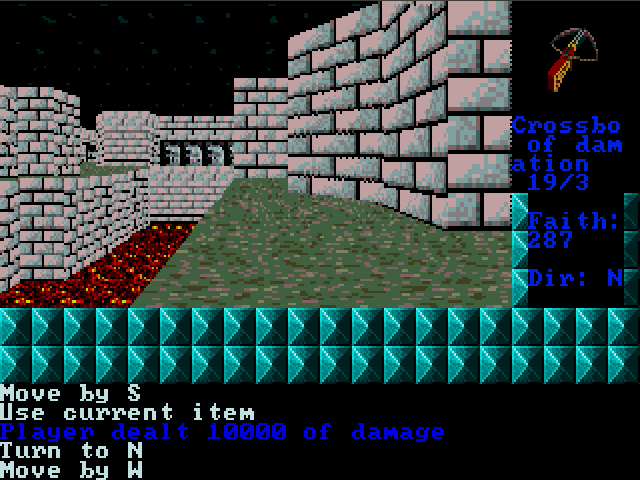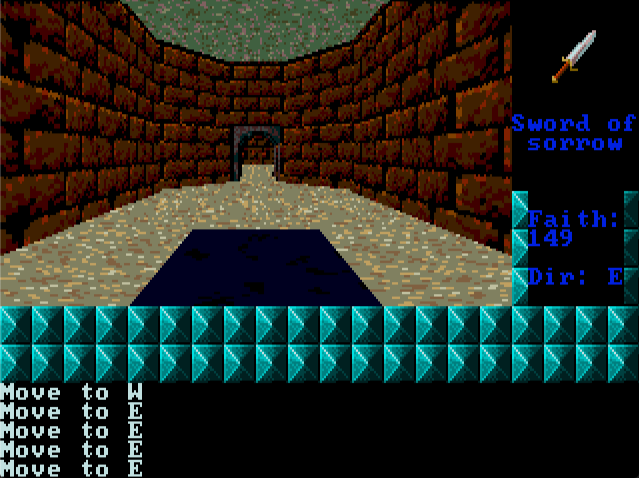A first person 2.5D dungeon-crawler for (MS/Free)DOS for Protected-Mode, written in C++14(ish), fixed point math and test coverage (for its core). As the 1990s tradition dictates!
Sound options include:
- Adlib
- PC-Speaker
- OPL2LPT
Make sure to clone recursively, with all submodules:
git clone --recursive https://github.com/TheFakeMontyOnTheRun/dungeons-of-noudar
Check your favorite Git book for more info.
Building the game requires a modern version of DJGPP. It was originally written using https://github.com/andrewwutw/build-djgpp, but later changed to use https://github.com/jwt27/build-gcc. It is known to build from either Linux and Mac just fine. ARM Linux also works well, but I could not test on Apple Silicon yet.
From inside DungeonsOfNoudar486, run:
make
This will build both the DOS executable and the data package. If you want just the data package, run:
make data
There is also an internal SDL2 version, meant for testing and development, available thru CMake or Makefile.SDL. This version will NOT assemble the data package. Build the DOS version first!
The game has been successfully tested on a 486 SX-33Mhz, with 8MB RAM. There are reports of it running on a 386, but I can't guarantee it's smooth enough.
The core stil is a valid text-mode dungeon crawler with almost the same geometry and rules as this version. In fact, when I was developing that one, I was already preparing the levels to be 3D (hence the somewhat gratuitous tiles variety). Go to noudar-core for building it.
The core also contains more detailed game design docs.
This game began its life as an Android VR game (Cardboard) and for a while it run just file like that. Eventually, the allure of building something for REAL DOS got me and those versions fell on the wayside. You can still build those from the V2 branch.
That branch also contains ports for other platforms, like iOS, OSX, LibRetro (as a core) and a botched Win32 version. Historically, there was also a OpenGL (software rendered) version for DOS, but it required too much CPU power and didn't look that pretty.

